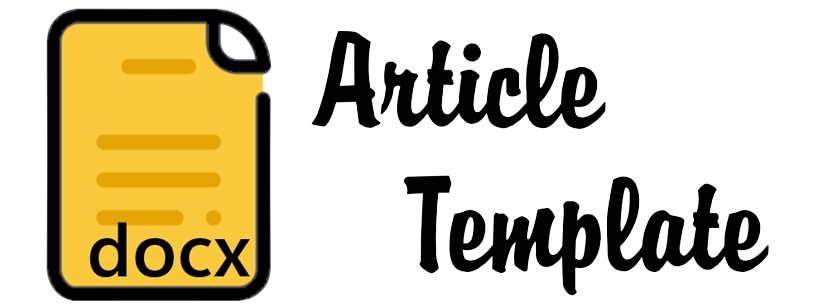The Development of Procedural Text Learning Module with an E-Learning-Based Flipped Classroom Model
DOI:
https://doi.org/10.55909/jpbs.v4i5.883Keywords:
development, procedural text, learning modul , flipped classroom modelAbstract
This study aims to: 1) analyze the needs of procedural text writing skills of grade XI students at SMAN 7 Banjarmasin using the Flipped Classroom learning model based on e-learning; 2) develop a procedural text writing learning module that suits students' needs; and 3) test the feasibility of the module based on expert assessments, teacher assessments, and student responses. The study took place in the even semester of the 2024/2025 academic year. The research method used a Research and Development (R&D) approach with stages adapted from the Borg & Gall model which included: preliminary study, planning, initial product development, limited trials, product revision, field trials, operational revisions, operational tests, final revisions, and dissemination and implementation. The results of the study showed that (a) the need for a procedural text learning module was identified through observations, interviews, and questionnaires with teachers and students, which showed the need for innovative teaching tools; (b) the developed module received a "good" assessment from material experts, "very good" from media experts, and "very good" from education practitioners; and (c) the results of the feasibility test from teachers and students gave a "very good" response. Thus, this Flipped Classroom-based learning module is suitable for use to improve the procedural text writing skills of class XI students at SMAN 7 Banjarmasin.
References
Agustin, P. H., & Indihadi, D. (2020). Analisis Keterampilan Menulis Teks Prosedur Siswa Kelas IV. Pedadidaktika: Jurnal Ilmiah Pendidikan Guru Sekolah Dasar, 7(2), 83–92.
Ahmad, C. N. C. Y. A., & Ahmad, S. S. S. (2020). Development of Practical Video Module (V-Lab) To Enhance Teaching And Facilitation Of Form Four Biology. Jurnal Pendidikan Sains dan Matematik Malaysia, 10(2), 1–7.
Akbar, A., & Rahma, A. (2019). Module Development Based on PBL (Problem Based Learning) on Environmental and Ecosystem Change Materials for Students of Class X SMAN 1 Singkarak. International Journal of Progressive Sciences and Technologies, 15(2), 46–52.
Andayani, R., Priyatni, Y., & Taufiq, P. E. (2017). Pengembangan Modul Pembelajaran Menulis Cerpen Bermuatan Motivasi Berprestasi untuk siswa kelas XI SMA. BASINDO: Jurnal Kajian Bahasa, Sastra Indonesia, dan Pembelajarannya, 1(1), 103–116. https://doi.org/10.17977/um007v1i12017p103
Arianti, R. (2019). Pengembangan Modul Pembelajaran Berbantuan Peta Pikiran pada Materi Menulis Karangan Argumentasi Siswa Kelas X MA Swasta Gantung Ciri Kabupaten Solok. Jurnal Ilmu Pendidikan Ahlussunnah, 1(1), 58–67.
Arsyad, A. (2020). Media Pembelajaran. Jakarta: Raja Grafindo Persada.
Astuti, A. P., Setiawan, M., & Nugroho, S. C. (2020). Digital Module Development SCL-Based For Mathematics Study Applicable In Nautical Department. Jurnal PAJAR (Pendidikan dan Pengajaran), 4(1), 71–79. https://doi.org/10.33578/pjr.v4i1.7867
Daely, B. (2020). Pengembangan Modul Pembelajaran Bahasa Indonesia pada Materi Menyusun Resensi untuk Meningkatkan Aktivitas Belajar Siswa Kelas XI SMA. Jurnal Education and Development, 8(2), 304–309.
Danuri, D., & Nurjanah, E. (2022). Pengembangan E-Modul Model Flipped Classroom pada Pembelajaran untuk Meningkatkan Kemampuan Penalaran Matematis Siswa Sekolah Dasar. Edukasi: Jurnal Penelitian dan Artikel Pendidikan, 14(2), 85-98. https://doi.org/10.31603/edukasi.v14i2.7906
Daryanto. (2013). Menyusun Modul Bahan Ajar untuk Persiapan Guru dalam Mengajar. Yogyakarta: Gava Media.
Farida, R. A., Arifin, K. R., & Zahra, Z. (2019). Pengembangan Model Pembelajaran Flipped Classroom dengan Taksonomi Bloom pada Mata Kuliah Sistem Politik Indonesia. Kwangsan: Jurnal Teknologi Pendidikan, 7(2), 99–113. https://doi.org/10.31800/jtp.kw.v7n2.p99—113
Jayakumar, N., Brunckhorst, O., Dasgupta, P., Khan, M. S., & Ahmed, K. (2015). E-Learning in Surgical Education: A Systematic Review. Journal of Surgical Education, 72(6), 1145–1157. https://doi.org/10.1016/j.jsurg.2015.05.008
Kemendikbud. (2020a). Capaian Pembelajaran Kurikulum Merdeka. Jakarta: Kementerian Pendidikan dan Kebudayaan.
Kemendikbud. (2020b). Konsep dan Komponen Modul Ajar. Jakarta: Kementerian Pendidikan dan Kebudayaan.
Kosasih, E. (2019). Jenis-jenis Teks dalam Mata Pelajaran Bahasa Indonesia SMA/MA/SMK. Bandung: Yrama Widya.
Recyalini, V., Darmansyah, D., Zuliarni, Z., & Amilia, W. (2024). Pengembangan E-Modul Berbasis Flipped Classroom pada Mata Pelajaran Informatika Kelas VII SMP. Jurnal Pendidikan Tambusai, 8(1), 7472-7479. https://doi.org/10.31004/jptam.v8i1.13664
Rusman, R. (2012). Belajar dan Pembelajaran Berbasis Komputer: Mengembangkan Profesionalisme Abad 21. Bandung: Alfabeta.
Sadiman, A. S., Rahardjo, R., & Haryono, A. (2018). Media Pendidikan: Pengertian, Pengembangan, dan Pemanfaatannya. Jakarta: Raja Grafindo Persada.
Sugiyono, S. (2019). Metode Penelitian dan Pengembangan (Research and Development). Bandung: Alfabeta.
Suherli, M. S., & Septiaji, I. A. (2017). Bahasa Indonesia Kelas X. Jakarta: Erika Books Media Publishing.
Susanti, D., Sutopo, L. Y., & Fajar, V. (2020). Curriculum Analysis of Biological Learning Media Module Development Based on Project-Based Learning (PjBL). Jurnal Penelitian Pendidikan IPA, 6(2), 157–161. https://doi.org/10.29303/jppipa.v6i2.428
Yustinah, Y. (2018). Produktif Berbahasa Indonesia Jilid 2 untuk SMK/MAK kelas XI. Jakarta: Erlangga
Downloads
Published
How to Cite
Issue
Section
License
Copyright (c) 2025 Syaifullah , Wenny Noorahim

This work is licensed under a Creative Commons Attribution-NonCommercial-ShareAlike 4.0 International License.







